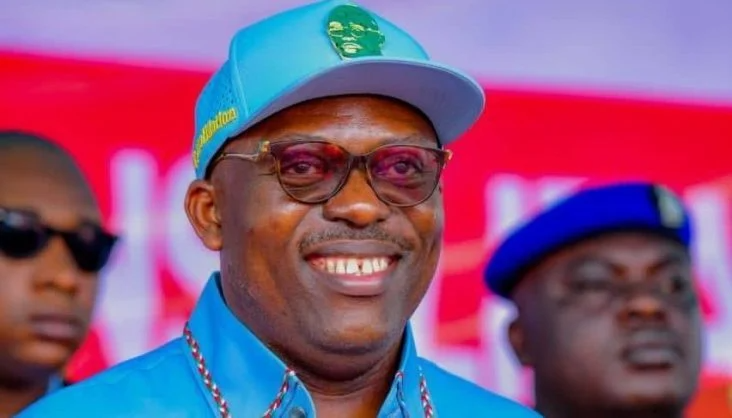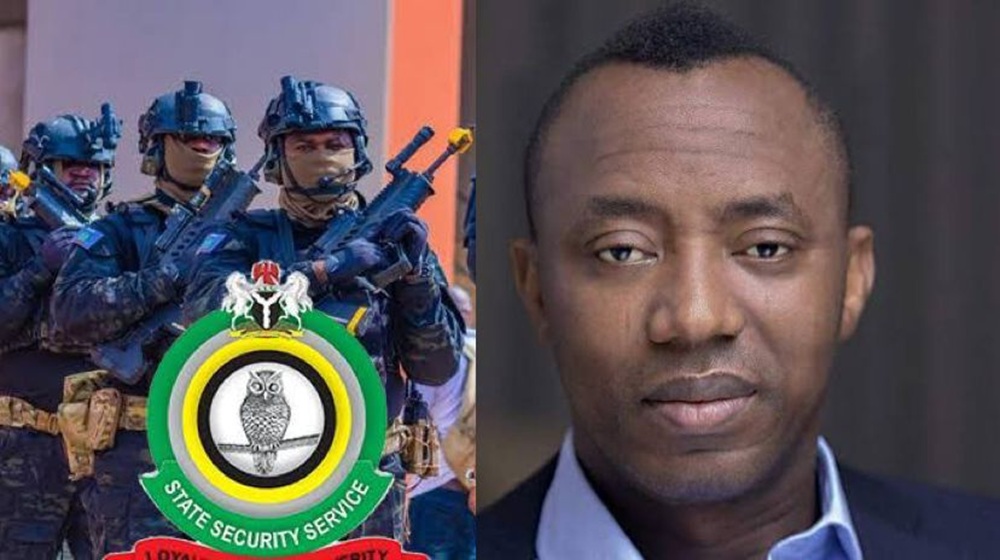Sowore's Legal Battle Escalates: Cybercrime Charges and Lawsuits Against DSS, Meta, X Rock Nigeria

The Nigerian government, through its Department of State Services (DSS) also known as the State Security Service (SSS), has filed five-count charges against Omoyele Sowore, publisher of Sahara Reporters and human rights activist, along with social media giants X Corp (formerly Twitter) and Meta Platforms Inc. (owner of Facebook). The charges were lodged at the Federal High Court in Abuja, primarily stemming from Sowore’s social media posts in August 2025, where he described President Bola Tinubu as a “criminal” and accused him of shamelessly lying about the absence of corruption under his regime during an official visit to Brazil.
The prosecution, led by Mohammed Abubakar, Director of Public Prosecutions at the Federal Ministry of Justice, filed charges that include two counts under the Cybercrimes (Prohibition, Prevention, etc) Amendment Act, 2024, and three counts under the Criminal Code Act. Specifically, Counts 1 and 2 allege that Sowore used his official X handle and Facebook page on August 25 and 26, 2025, respectively, to publish false messages intended to cause a breakdown of law and order, contrary to Section 24(1)(b) of the Cybercrimes Act. Counts 3 and 4 accuse Sowore of publishing defamatory materials against President Tinubu’s personality and reputation on these platforms, in violation of Section 375 of the Criminal Code Act. Count 5 charges him with deliberately publishing false information on August 26, 2025, with intent to cause public fear and disturbance, contrary to Section 59 of the Criminal Code Act. While X and Facebook are listed as co-defendants, the framing of each count directly targets Sowore, without explicitly naming the platforms as offenders.
These legal actions followed demands from the DSS, issued about two weeks prior to the charges, for X and Meta to delete Sowore’s posts and deactivate his accounts. The DSS also warned Sowore directly to remove the posts, deeming them “false, malicious, and inciting.” However, Sowore steadfastly refused to comply, informing the US-headquartered corporate bodies that the DSS’s demands were part of a continuous pattern of harassment and rights violations he has experienced from the government due to his public views and civic actions. He also publicly vowed to appear in court and defend his posts.
In a counter-move, Omoyele Sowore filed fundamental rights actions at the Federal High Court, Abuja, against the DSS, Meta, and X Corp., challenging what he termed unconstitutional censorship of his social media accounts. Represented by his lawyer, Tope Temokun, Sowore’s suit argues that the DSS has no legal authority to censor Nigerians on social media and that Meta and X must not allow their platforms to become tools of repression. The lawsuit emphasizes the importance of free speech in Nigeria, citing Section 39 of the 1999 Constitution which guarantees freedom of expression. Sowore’s legal team stated that if state agencies could dictate who speaks and what is said on global platforms, then no Nigerian’s voice would be safe from those in power, and that censorship of political criticism is alien to democracy. They urged Meta and X not to hide behind neutrality while authoritarianism is exported onto their platforms.
This is not Sowore’s first encounter with the Nigerian government’s security agencies. His faceoff worsened in 2019 following his arrest by the SSS after calling for a nationwide #RevolutionNow protest. He was charged with treasonable felony and other criminal offenses, enduring repeated detentions despite court orders granting bail, including a controversial re-arrest inside a courtroom. Human rights groups like Amnesty International and the Committee to Protect Journalists (CPJ) have consistently condemned the government’s treatment of Sowore as an attempt to stifle dissent. As of now, no date has been fixed for the arraignment of the defendants in the current case.
You may also like...
Man Utd's Amorim Assurance: Chiefs Back Manager Despite Struggles

Despite a devastating derby loss and their worst league start since 1992, Manchester United chiefs are standing by Ruben...
Arsenal's UCL Glory: Martinelli's Blitz & Bilbao Battle Scars

Arsenal secured a winning start to their Champions League campaign against Athletic Bilbao, overcoming a challenging fir...
Man of Steel Lands: James Gunn's Superman Gets Exciting Streaming Debut Date!

James Gunn's <i>Superman</i>, starring David Corenswet, is set to arrive on HBO Max this Friday, September 19, following...
Frozen 3 Shakes Up Disney's Formula With Plot Twist Not Seen in 25 Years

The plot for Disney's upcoming 'Frozen 3' has been revealed, teasing a royal wedding between Queen Anna and Kristoff, an...
Farewell to a Legend: Iranian Singer Hooshmand Aghili Dies at 88

Hooshmand Aghili, a revered musician whose voice defined generations for the Iranian diaspora, passed away at 88. His il...
Tune In! BillboardTV to Launch 24/7 Music Channel on Samsung TV Plus

Billboard and Samsung TV Plus have launched BillboardTV, a new 24/7 streaming channel dedicated to music culture and new...
Little Mix Star Jade Thirlwall's Shocking Sacrifice for Diana Ross Sample!

Jade Thirlwall's debut album, "That's Showbiz Baby!", is making waves, featuring a bold sample of Diana Ross's "Stop! In...
Millionaire Pop Star's Wild Undercover Stag Do Adventure at Butlin's Revealed!

Discover the latest from the entertainment world, including Ed Sheeran's surprising love for Butlin's holidays, Paul Mes...




